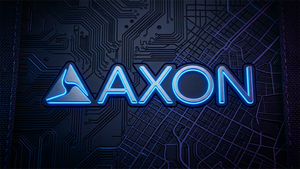--News Direct--
By Faith Ashmore, Benzinga
It may now be less necessary for Americans to rely on a bank to succeed financially. As e-commerce grows and digital products become more available, embedded finance has become an option for consumers and companies. Embedded finance comprises non-financial companies offering financial products and services. These products and services can include debit cards, payment programs, accounting software, etc.
An example of embedded finance in action is how Uber now offers its drivers a debit card where the money they make on the app can be put on an Uber debit card, circumventing a traditional banking institution for its drivers. Certain brands now offer flexible payment options through e-commerce platforms like Klarna; Klarna partners with many retailers like Ulta Beauty to offer its customers an option to pay in full or to sign up for payment installments through Klarna which will break the purchase into several smaller payments.
It's estimated that embedded financial services will produce $230 billion in revenues by 2025, a significant increase over the $22.5 billion generated in 2020. One of the main draws of embedded finance is the flexibility and increased options that customers gain. For businesses, embedded finance increases engagement. 88% of companies that implemented some degree of embedded finance reported increased engagement and 85% reported that the embedded finance options helped them acquire new customers.
Embedded finance is only expected to grow. More than 33% of global card spending takes place online; in the U.S. over 50% of spending takes place digitally. As Gen Z comes of age, these percentages can be expected to climb.
Companies like Inter&Co (NASDAQ: INTR) understand the importance of embedded finance in a growing digitized world. Inter is a digital bank that offers a complete range of services in banking, investments, credit, insurance, and cross-border services. The company operates in Brazil and the United States. Everything on the platform is integrated into a simple, easy-to-use app. Inter is now focused on expanding its Super App capabilities to the U.S. With the acquisition of remittances business USEND, Inter&Co began offering a global account and remittances services to both Brazilians abroad and locals.
Inter recently announced they have become a certified payment provider with Amazon. Now Inter’s Brazilian clients who are sellers on Amazon Marketplace will be able to receive and send payments directly to their Inter digital accounts.
Aloisio Matos, Head of Cross-Border at Inter, shared, "Becoming a certified provider with Amazon is an important milestone for Inter as we continue supporting our commitment to making our clients' lives easier and helping them achieve their financial goals. To make this happen, we have swiftly and successfully implemented significant technical and security developments. We are excited to see this development as it brings benefits and peace of mind to our users."
Inter is using embedded finance to empower entrepreneurs to succeed financially. Embedded finance could be a big player in e-commerce in the coming years and companies like Inter can become essential to small businesses that are looking to leverage embedded finance to succeed in their goals.
One way Inter is succeeding in building a powerful platform that goes beyond banking is through its Inter Shop. Inter Shop started in 2020 and is a marketplace for its users to shop at. Inter Shop has major partnerships like Amazon, Nike, and Magalu. The marketplace allows customers to access retail goods and get cashback without ever needing to leave the platform. As more people are drawn to simple e-commerce opportunities, platforms like Inter have the possibility to lead the pack and gain customers. While the rest of the banking industry offers 4-5% cash back at the most, Inter is able to offer 10% cash back for purchases made with major brands and retailers, such as Apple, Target, Amazon, or airlines such as Delta, American Airlines, and Southwest.
Supported by the success of the Super App in Brazil, Inter is rolling out more and more financial and non-financial services through its Super App to U.S. customers. Ultimately, Inter sees its users around the world using the app for shopping, insuring cards, investing through the investment platform, buying plane tickets, paying trip expenses through its Global Account…and more, all in a single app.
This article was originally published on Benzinga here.
Inter&Co is the holding company of Inter Group and indirectly holds all of Banco Inter’s shares. Inter is a digital bank that simplifies people’s lives, where everything is integrated in a single app. In Brazil, under the Inter brand, the company offers a complete suite of services in banking, investments, credit and insurance, in addition to a virtual mall that brings together the best retailers in Brazil and the US. The company’s US digital account, under the Inter Global brand, allows individuals and companies to make transfers in U.S. dollars quickly, safely and 100% online, as well as process payments from several international platforms. It also offers debit cards, gift cards with cashback, and ACH/Wire transfers to any account in the US, serving as a hub for the needs its customers have in a world without borders. Inter&Co is listed on Nasdaq under the ticker INTR.
This post contains sponsored advertising content. This content is for informational purposes only and is not intended to be investing advice.
This material may contain forward-looking statements regarding Inter, anticipated synergies, growth plans, projected results and future strategies. While these forward-looking statements reflect our Management’s good faith beliefs, they involve known and unknown risks and uncertainties that could cause the company’s results or accrued results to differ materially from those anticipated and discussed herein. These statements are not guarantees of future performance. These risks and uncertainties include, but are not limited to, our ability to realize the amount of projected synergies and the projected schedule, in addition to economic, competitive, governmental and technological factors affecting the Bank, the markets, products and prices and other factors. In addition, this presentation contains managerial numbers that may differ from those presented in our financial statements. The calculation methodology for these managerial numbers is presented in Inter’s quarterly earnings release. Statements contained in this report that are not facts or historical information may be forward-looking statements under the terms of the Private Securities Litigation Reform Act of 1995. These forwardlooking statements may, among other things, beliefs related to the creation of value and any other statements regarding Inter. In some cases, terms such as “estimate”, “project”, “predict”, “plan”, “believe”, “can”, “expectation”, “anticipate”, “intend”, “aimed”, “potential”, “may”, “will/shall” and similar terms, or the negative of these expressions, may identify forward looking statements. These forward-looking statements are based on Inter's expectations and beliefs about future events and involve risks and uncertainties that could cause actual results to differ materially from current ones. Any forward-looking statement made by us in this document is based only on information currently available to us and speaks only as of the date on which it is made. We undertake no obligation to publicly update any forward-looking statement, whether written or oral, that may be made from time to time, whether as a result of new information, future developments or otherwise. For additional information that about factors that may lead to results that are different from our estimates, please refer to sections “Cautionary Statement Concerning Forward-Looking Statements” and “Risk Factors” of Inter&Co Annual Report on Form 20-F. The numbers for our key metrics (Unit Economics), which include active users , average revenue per active user (ARPAC), cost to serve per active cliente (CTSAC) and cross selling index (CSI), are calculated using Inter’s internal data. Whether based on what we believe to be reasonable estimates, there are challenges inherent in measuring the use of our products. In addition, we continually seek to improve estimates of our user base, which may change due to improvements or changes in methodology, in processes for calculating these metrics and, from time to time, we may discover inaccuracies and make adjustments to improve accuracy, including adjustments that may result in recalculating our historical metrics. The financial information, unless otherwise stated, is presented in millions of reais, in accordance with the consolidated financial statements, in IFRS.
Contact Details
Santiago Stel
Company Website
https://www.bancointer.com.br/
View source version on newsdirect.com: https://newsdirect.com/news/embedded-finance-is-fast-becoming-a-viable-alternative-to-traditional-banking-for-many-financial-services-721994524






